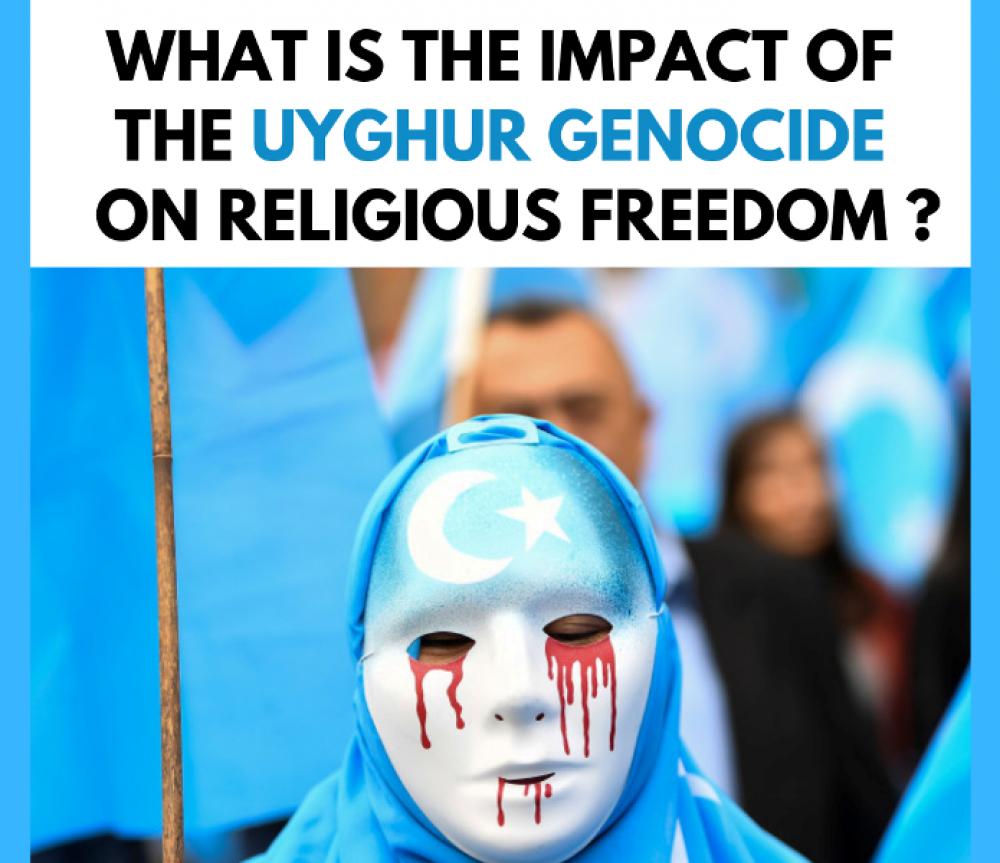Just Earth News | @justearthnews | 20 Apr 2023

Image: Campaign for Uyghurs
Although successive Pakistani governments, political parties and the media are silent because of the country’s close ties with China, voices have begun to rise in favour of the Uyghurs, the Muslim community in the neighbouring Xinjiang province.
Sections of Pakistani media are talking about the persecution of the Uighurs by the Chinese authorities, quoting Western media reports and human rights bodies, which Islamabad ignores or denies.
At one point former Pakistan prime minister Imran Khan even denied the allegations against the Beijing authorities saying he did not believe them.
Significantly, Qazi Javid, in his column in Urdu in Jasarat (April 19) reminds China of its treatment of Uyghur women when China expressed ‘concern’ about the Afghan women’s treatment by the Taliban rulers, an issue in another neighbouring country wherein Pakistan either keeps mum or soft-peddles in its official pronouncements, fearing that Kabul may retaliate.
The Chinese also declare that they do not ‘interfere’ in the internal affairs of any country, but have made exceptions, for obvious diplomatic reasons, to express their ‘concern’ abound the Taliban not allowing Afghan women to enter schools and colleges and take up employment.
The issue is thus a delicate one on which all three countries are careful and evasive.
{image_1}
Besides religion and the human rights aspects, there is also opposition to the China-Pakistan Economic Corridor (CPEC) that traverses through Pakistan from Xinjiang to Gwadar on the Arabian Sea. Pakistanis, especially the Islamic clergy on one hand and the ‘nationalists’ on the other, resent the Chinese presence.
Javid, reflecting these multiple aspects, attacks China's Foreign Minister Qin Gang for recent comments disapproving of the Taliban’s treatment of Afghan women.
“Yes, this is the same China where the women of the Muslim Uyghur community are left naked, handcuffed, and humiliated in front of humanoid dogs and other animals for practising Muslim beliefs,” Javid writes.
“A few are punished until they die and the perpetrators are told not to allow them to die too soon but to let them suffer as much as they can,” Javid writes quoting a report prepared by a Britain-based human rights body.
“The Muslim world and free people around the world want to ask China's Foreign Minister Qin Gang if China is not committing genocide against the Uyghur Muslim community.”
According to Legal Opinion published in the UK in 2017, which is reviewed annually, there is clear evidence that the Chinese government is complicit in the crimes of genocide against the Uyghur community.
Javid says that a case can be filed against China in the International Court of Justice. The legal opinion states that there is extensive evidence in north- western China that indicates the Chinese government intends to exterminate this Muslim minority (the Uyghurs).
“Evidence shows that measures such as deliberately harming Uyghur Muslims during detention, terminating women's ability to bear children and promoting abortion were taken, while children of Uyghur families were forcibly removed from their homes. There is also evidence of shifting them outside their community.
Javid alleges that “Chinese President Xi Jinping himself is responsible for these crimes against humanity. “
It is stated in the report that "Xi Jinping's policy is linked with targeting the Uyghurs. According to the legal opinion, "there is evidence that the Chinese government's actions against the Uyghurs in Xinjiang amount to crimes against humanity and genocide against this community."
The Global Rights Action Group, which focuses on legal issues abroad and the World Uyghur Congress and the Uyghur Human Rights Project, sent the opinion to the commission on behalf of the Global Legal Action Network, Javid notes.
He cites a 100-page document, compiled by senior barristers at London's Essex Court Chambers, including Alison Macdonald QC. It is believed to be the first formal UK legal action on China's actions in Xinjiang. The documents include witness testimony from survivors, satellite images and documents released by the Chinese government.
“It is a fact that genocide is not that easy to prove. The court has to be convinced that these crimes were committed with the intention of destroying a national, ethnic or religious group in whole or in part. The opinion provides comprehensive details of the Uyghurs' "enslavement, torture, rape, forced sterilization and persecution", Javid writes.